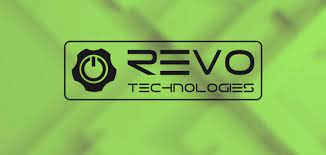Humanization Technology Revolutionizes digital content by using Manuscripts
Manuscripts, using its advanced AI technology, has created a humanizer, and an AI Book Writer marking a major milestone in artificial intelligent and content creation. This breakthrough bridges the gap between computer-generated text, and writing that is human-like. It could transform the landscape of digital content creation.
Manuscripts AI uses cutting-edge machine learning and natural language processing techniques to convert sterile machine-generated content into conversational, natural content. The AI uses a suite of sophisticated humanization techniques to produce output that closely resembles the work of a human author, including language nuances, context awareness, and personality.
The AI book author incorporates everyday words, personal anecdotes and subtle humor into its writing. These are elements that have challenged AI writing systems for years. The AI book writer has transformed what once read as an obtuse piece of information into a thoughtful and engaging article. This has important implications for publishing and marketing, journalism and education. It provides content creators with an effective tool to streamline their workflow, while still maintaining a personal touch.
Manuscripts’ AI book writer allows publishers to create initial drafts for books and articles that can be then refined and finalised with human writers. Marketing teams can produce large volumes of engaging, personalised content for different platforms and audiences. Journalists will find that Manuscripts’ humanizer is a great tool for transforming data-heavy stories into more readable articles.
This advanced AI book writer and humanizer raises important questions about writing and authorship in the future. It will be increasingly difficult to tell the difference between machine-generated and human-written content as these systems develop. This blurring could have serious ramifications on industries that heavily rely on original content.
There have been concerns raised over the misuse of AI technology. For example, the production of fake news in mass or the flooding of the internet with AI generated content that drowns human voices. There are also ethical issues related to the proper attribution of AI-humanized material and transparency.
Manuscripts emphasizes that its AI content humanizer, and book writer is designed to help human writers not replace them. This technology can be used to mimic writing styles, and to adapt content to the context and reading level of different audiences. It can be used in education to transform textbook content from a dry, formal format into a more conversational, engaging format that students will better understand.
This technology opens up new possibilities in terms of personalised content consumption. Imagine news apps that suggest articles of interest, but also present them in the style you prefer – formal or casual.
The technology is in its early days and still faces many challenges. It is difficult to ensure that the humanized content remains logically and factually consistent, while also making it more engaging and natural. To avoid homogenization, it is also important to preserve the voice and flavour unique to each author or brand.
Manuscripts Research continues to develop this technology. The goal is an AI book author that can not only read words, but also understand context and subtext. This will allow them to create original content more complexly and capture distinct voices of authors or brands.
The AI book writer from Manuscripts and the content humanizer are a new evolution in digital content that will reshape it, allowing for engaging text to be produced at scale. The potential benefits of AI are significant, even though there are still challenges and ethical concerns.
Manuscripts’ latest advancement is only the beginning. We can expect significant changes in the way digital content is produced, consumed and perceived as AI book writer technology becomes more widely used. In the future, writing could be a harmonious combination of human creativity and AI support, opening up new frontiers in storytelling, communication, and information exchange.
It is now up to us to use this powerful technology ethically and responsibly, so that it does not erode the human element of our digital discourse. The AI book writer is impressive but it raises many questions regarding its implications and those who might be affected by the technology’s continued development.






